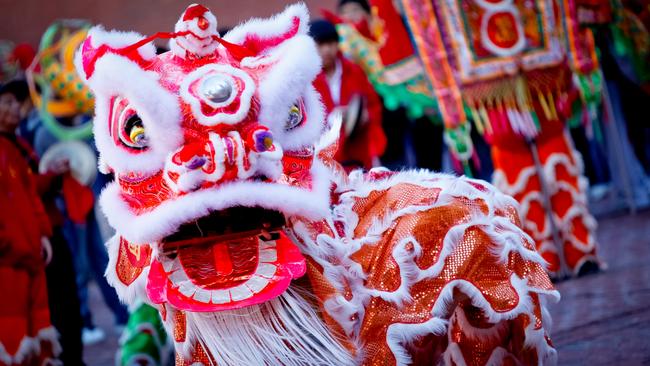
The move has hit shares of Australia’s major wine exporter, Treasury Wine Estates, two days in a row and prompted crisis talks between Trade Minister Simon Birmingham and the wine industry on Wednesday morning.
It has also cast a pall over future expectations of Australian wine sales to China, with fears they may be hit by big tariffs as a result of the investigation. There is also concern about the future of other exporters of Australian goods to China, which continues to be our strongest trading partner even during COVID-19.
Will we see more temporary bans on Australian abattoirs, which will cut back beef imports? Are dairy products next? (Cue A2 Milk waving its New Zealand flag.) Will China’s approach to wine spill over into sales of, say, Blackmores’ products? What company or exporter will be hit next?
That said, it is important to read as many tea leaves as possible when it comes to dealing with China. The real story is always a lot more complicated and nuanced than the headlines.
It is clear that China is using our successful wine export business to send a message to Australia about its anger at certain policies and comments of the Morrison government — a message that was delivered back in April by China’s ambassador to Australia, Cheng Jingye, in a media interview that directly responded to Foreign Minister Marise Payne’s call for an inquiry into the origins of the coronavirus.
The wine industry and the Australia-China business community have been watching this issue closely ever since.
But one also has to take at some level of face value comments made this week by both China’s Ministry of Foreign Affairs and an editorial on Wednesday by the nationalistic Global Times.
The Ministry of Foreign Affairs clearly insisted that the move was a genuine anti-dumping investigation, promoted by complaints from domestic Chinese winemakers and was not politically motivated. That doesn’t mean it is not politically motivated, but it does mean that it is also a measured action designed to send a very clear signal but also not flagging a full-scale breakdown in the trade relationship.
Interestingly, the Global Times carried an initial story about the move, quoting one academic, Liu Qing, the director of the Asia-Pacific security division of the China Institute of International Studies, saying the investigation “reflects a deteriorating political relationship between China and Australia, where trust has been destroyed by Australia’s hostility”.
But it followed it up with an editorial taking a much more conciliatory line.
In some sense echoing the Ministry of Foreign Affairs line, the editorial warns that markets in Australia should not overreact to the anti-dumping investigation on wine.
It was “worrying”, the Times said, that “the market tends to over interpret the potential tariff threat to a level far beyond its actual economic impact”.
“Under the impression that China-Australia relations are in an endless downward spiral, businesses will understandably shun political risks, reducing relevant investment and business activities,” it continued.
Escalating tensions
“Such an over-interpretation amid escalating tensions between the two countries may generate worse consequences than the anti-dumping investigation itself.”
Some credence does need to be given to the argument made by the Times and University of NSW-based trade expert, Weihuan Zhou, that China’s anti-dumping actions follow years of anti-dumping actions by Australia against Chinese goods, particularly steel.
In recent times, China has only launched two anti-dumping inquiries into Australian imports — one against barley, which began in November 2018 and was finalised earlier this year with the imposition of tariffs of 80 per cent, and this week’s announcement of an investigation into wine.
The Australian public pays little attention to anti-dumping investigations against Chinese products coming in here, yet the Chinese anti-dumping investigation into Australian wine following a massive increase in exports in recent years has become front-page news.
(Even the barley investigation got little attention at the time it was announced.)
Sadly, the announcement will now see months — possibly as long as 18 months — of work being done by the Australian wine industry and Austrade to argue the merits of its case, including the fact that Australian wine is at the top end of the market, moving to a higher-priced product, and is not price cutting.
Volumes have actually come down, with average prices rising.
Credence also needs to be given to the fact that the investigation follows a complaint from the domestic Chinese wine industry, which has been suffering from the country’s economic shutdown.
Aa final decision on whether to impose new tariffs on wine, and of how much, will probably be as much political as economic.
Meanwhile the case will hang over the Australian wine industry and companies such as TWE for a long time, potentially into 2022.
Disputes with China
Australia is not the only country which is having disputes with China. The US has been conducting a full-on trade war for years under the Trump administration, while other countries such as Canada are having their own issues with China.
Britain, which has tended to have a good relationship with Beijing, could be set for problems over China’s increasing imposition of controls on the former British colony of Hong Kong, as well as its decision on Huawei.
China itself has become much more nationalistic and assertive under the leadership of Xi Jinping. But that said, when it comes to diplomacy, one tenet should be not to go out of one’s way to make any unnecessary enemies.
So far this year it has been Australian agricultural exports to China — one of the success stories of recent years — barley, beef and now wine that have become collateral damage in the deteriorating political relationship.
One truly wonders what role the Nationals are having in the internal discussions within the Morrison government over its policies and comments on China.
Dealing with China is set to become increasingly complicated, with more industry fallout to come. Fractiousness and tensions are now part of the relationship. The challenge is avoiding unnecessary damage.







There is no doubt that China has delivered Australia a significant warning, with the announcement by the powerful Chinese Ministry of Commerce that it plans to launch an anti-dumping inquiry into the $1.1bn Australian wine export industry to China.